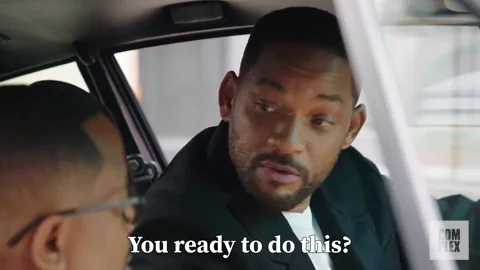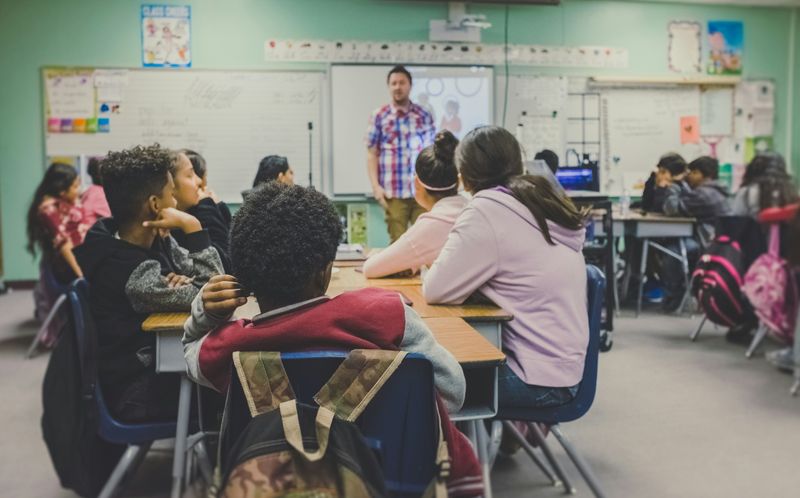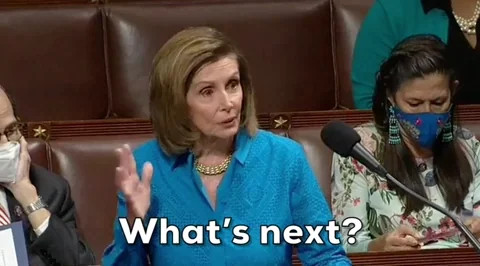So you’ve decided to take your teaching career to the next level and landed an interview to become a teacher trainer. But now you’ve got to get ready for the questions they’ll ask you.

An interview for a teacher trainer role will include questions around some key areas, including:
Your teaching experience
Your ability to support others
How you approach training
Your impact
But don’t worry! With the right preparation, you can ace those interview questions and kick-start your journey.
1. "What is your teaching experience and how has it prepared you for this role?"
The interviewer wants to know if you know much about the subject you'll be teaching. It's important because you need to be an expert to teach others. They also want to see if you understand what it's like to be a teacher and can help other teachers with the challenges they may face in their classroom practice.
 Photo by Kenny Eliason on Unsplash
Photo by Kenny Eliason on UnsplashExample interview question:
Tell me about your teaching background and highlight the skills you've developed that are relevant to this role.
Do: ✅
Highlight your range of experience and skills as a teacher.
Explain how your experience helps you train others.
Mention when you've led others and projects.
Don't: ❌
Just say you're a good teacher!
Be shy about your accomplishments.
Just talk about students.
Example answer:
"I've been teaching for [number] years at [school name] in [grade level/subject]. I've had the chance to support new teachers, take charge of professional development workshops, and collaborate with colleagues on instructional strategies.
For example, when I mentored a new teacher, I focused on building their confidence in classroom management and providing regular feedback on their lessons."
2. "What strategies would you use to train teachers on new initiatives or teaching methods?"

This question evaluates your ability to design and deliver effective training. It shows you can translate theory into practice and engage teachers in meaningful professional development.
Example interview question:
What are your preferred methods for training teachers on new ideas or approaches?
Do: ✅
Give examples of how you'd make it interactive.
Think about how adults learn.
Focus on real-world applications.
Offer follow-up support after training.
Don't: ❌
Advise a one-size-fits-all approach.
Only suggest what you like.
Overlook practical application.
Forget that teachers need ongoing support.
Example answer:
"I think the best way to train teachers is to mix learning about the theory with giving them a chance to practice. I'd start by figuring out what each teacher needs to learn. Then, I'd create a training plan with activities like group discussions and having teachers observe each other.
I'd also give them a safe space to try out new things. Finally, after the training, I'd offer help and support to ensure they can implement what they learned in their classrooms."
3. "How would you handle a situation where a teacher resists implementing a new teaching strategy?"
Teacher trainers need strong interpersonal and problem-solving skills. This question highlights your ability to navigate resistance and work collaboratively with a diverse range of teachers to foster positive change.
Resistance to change can have different causes, such as fear of the unknown, lack of trust, loss of control, or comfort with the status quo.
Watch the video below to find out more!
Example interview question:
What would you do if a teacher expressed reluctance to participate in a professional development opportunity?
Choose the best responses:
A. Tell the teacher they're required to participate and dismiss their reluctance as unimportant or unreasonable.
B. Schedule a meeting to talk with the teacher individually. Ask them about their concerns and try to understand their perspective.
C. Highlight how the professional development opportunity will benefit the teacher's professional growth and student learning.
D. Assign the teacher additional tasks to make up for not attending the professional development.
Quiz
What would you do if a teacher expressed reluctance to participate in a professional development opportunity? Select all responses that apply:
4. "How would you measure the success of your training programs?"
 Image courtesy of fabrikasimf via Freepik
Image courtesy of fabrikasimf via Freepik
Schools want trainers who focus on impact and outcomes. Your ability to evaluate effectiveness demonstrates accountability and a commitment to improving teaching quality.
Example interview question:
How would you determine whether a teacher training program has been successful in achieving its goals?
Do: ✅
Say that you'll use a variety of data collection methods.
Provide ongoing feedback.
Don't: ❌
Make assumptions about success.
Ignore the long-term impact of your training.
Example answer:
"I'd use different ways to evaluate if the training worked. This includes surveys before and after training to see what teachers learned. I'd also observe teachers in the classroom to see if they implemented what they learned.
I'd look at how students perform to assess the impact of the training on student learning outcomes.
Finally, I'd talk to teachers to get their feedback on the training effectiveness as this will help us make the training even better."
Take Action
Being a teacher trainer is incredibly rewarding because you can empower other educators and improve teaching and learning. Good luck with your interview!

Your feedback matters to us.
This Byte helped me better understand the topic.
